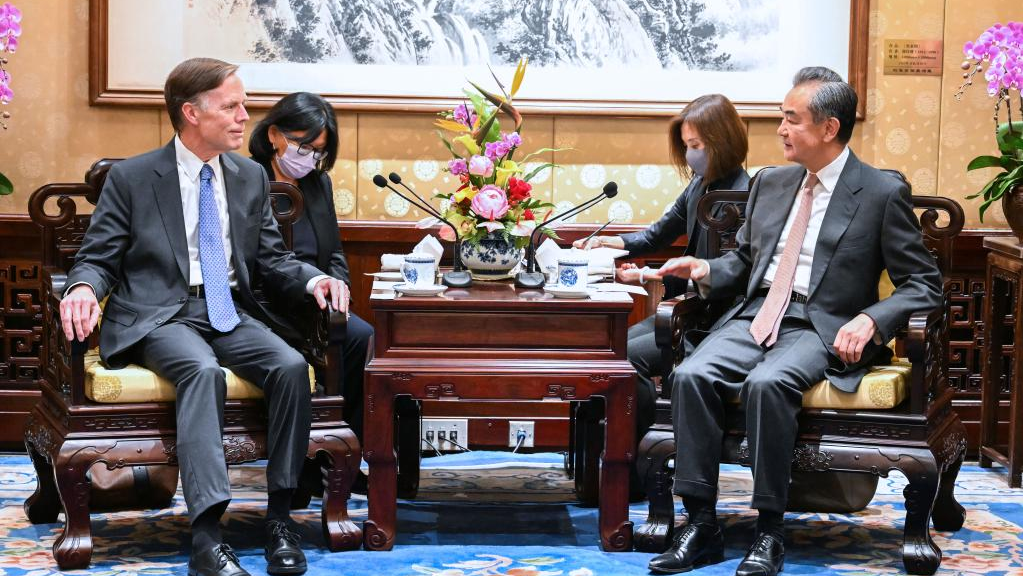By Hannan Hussain
On October 28, Chinese State Councilor and Foreign Minister Wang Yi met with U.S. Ambassador to China Nicholas Burns, building on the need for more practical expectations in a consequential U.S.-China bilateral relationship. Wang's informed view – that neither side can change the other – rings true on many levels. "As an ambassador to China, [we] hope that you can be a bridge in linking China and the U.S.," said the foreign minister, illustrating a marked shift from the zero-sum game dominating U.S. policy thinking at the moment, which suggests that this consequential relationship is now at a "critical juncture," according to Reuters.
On bridging the trust gap, expectations from the international community are difficult to ignore. From a regional perspective, partners close to Washington and Beijing have signaled their early resistance to increased risks of confrontation and miscalculation between the major powers. That makes it imperative for the U.S. to be more responsive to regional expectations on peace, and avoid attempting to communicate with China "from a position of strength," as Wang said during his meeting with Burns.
Moreover, Wang's exchange with Burns affords valuable scrutiny to another misled aspect of the Joe Biden administration's China policy: that the U.S. can alter a change in behavior as it sees fit. In quite a contrast, principles of mutual respect, win-win cooperation, and coexistence have driven China's approach to America. One of the immediate strengths of this approach is that it keeps the door for actionable diplomacy open, as seen in the Wang-Burns exchange. Similarly, it keeps the possibility of bridging the trust divide between two major powers alive and well.

Chinese State Councilor and Foreign Minister Wang Yi meets with U.S. Ambassador to China Nicholas Burns, October 28, 2022. [Photo/Xinhua]
On the other hand, the absence of such a principled approach in Washington has given full play to counterproductive assumptions about China, chiefly that the U.S. can alter China's behavior and constrain the Asian power's development by employing a rivalrous view. Burns' insistence that China-U.S. ties are "vital to both countries" should still be seen as a positive indicator of all that is possible when zero-sum containment is given a rest.
But there is still a long way for the U.S. to translate that intent into credible action. Recent developments confirm little determination on Washington's part to quit interference in China's internal affairs, chiefly on the Taiwan question. Remarks from Secretary of State Antony Blinken suggest a growing desire to misrepresent the one-China principle. Violations of Beijing's redlines can't be billed as some matter of U.S. interests either. Such unwarranted connections do nothing to liberate Washington from its "Cold War" view of Beijing, and the Wang-Burns exchange makes it clear that China's rise is not tethered to U.S. approval.
Instead, the meaningful goal should be to do what diplomacy does best: to remind the world of wide-ranging commonalities between two major powers, even at a time of multiple low points. In Wang's own telling, the global community expects to "see stable development of this relationship."
To that end, the onus falls on Washington to promote stability from within so that it can meet China halfway and help cover lost-ground on valuable cooperation. That includes mitigation of conflict risks in Asia, respecting each other's autonomous and independent development, and strengthening communication to promote what Chinese President Xi Jinping described as the "stability and certainty of the world."
The exchange on October 28 also gives a chance to pragmatic diplomacy between the U.S. and China, once assumptions about constraining the latter's rise are corrected. In many ways, genuine introspection is essential for the U.S. to come to terms with some fundamental truths, which include the fact that nothing can constrain China's development, that a "position of strength" is at odds with equal-footed engagement, and that major powers can't change each other.
What they can do is to coexist with each other to the benefit of a world in waiting.
Hannan Hussain is a foreign affairs commentator and author. He is a Fulbright recipient at the University of Maryland, the U.S., and a former assistant researcher at Islamabad Policy Research Institute.

 中文
中文



